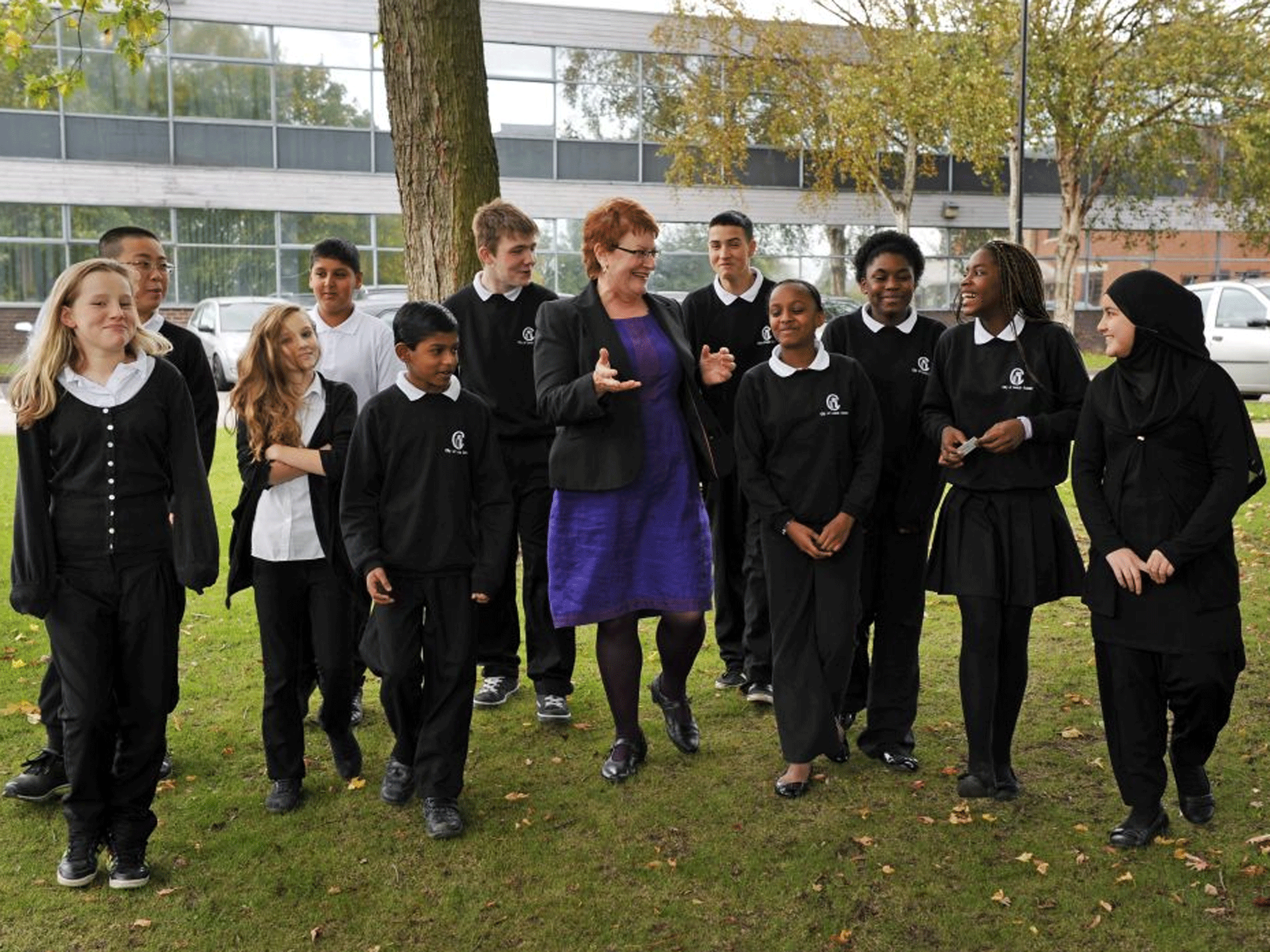Leeds school with children from 50 countries is first to teach English as a foreign language to all pupils

Your support helps us to tell the story
From reproductive rights to climate change to Big Tech, The Independent is on the ground when the story is developing. Whether it's investigating the financials of Elon Musk's pro-Trump PAC or producing our latest documentary, 'The A Word', which shines a light on the American women fighting for reproductive rights, we know how important it is to parse out the facts from the messaging.
At such a critical moment in US history, we need reporters on the ground. Your donation allows us to keep sending journalists to speak to both sides of the story.
The Independent is trusted by Americans across the entire political spectrum. And unlike many other quality news outlets, we choose not to lock Americans out of our reporting and analysis with paywalls. We believe quality journalism should be available to everyone, paid for by those who can afford it.
Your support makes all the difference.A school in Leeds is to become the first in the UK to teach English as a foreign language to all its pupils regardless of their ethnic background.
Less than a quarter of students at City of Leeds School speak English as their native tongue with the majority of those having arrived in the UK within the past four years.
Headteacher Georgiana Sale said the move was part of a “rethink” aimed at driving up standards across the school as many pupils with English as their first language were also struggling academically.
“We are proud to be a multicultural school and will continue to encourage new ideas to help us to be a supportive and encouraging learning environment where all pupils are given the same chances to learn,” she said.
From this year all learners will undertake an additional 50 minutes a week instruction to “boost their fundamental English skills and improve their basic spelling and grammar”.
Ms Sale is working with experts from Leeds Metropolitan and Sheffield Universities while staff are undergoing retraining. Lessons will be based on ability rather than age.
It is estimated that up to one in eight secondary school age children In England do not speak English as their first language. The figure is one in six among primary school children. At some schools in London and other big cities the figure is closer to 90 per cent.
There are currently around 55 different nationalities being taught at the inner-city comprehensive in Leeds which has 300 pupils and was last rated in need of improvement by Ofsted.
In recent years growing numbers of families have moved to the city from Africa, the Middle East, Afghanistan and Pakistan as well as witnessing a rapidly growing number of European Roma, a population from which just one in 10 children achieve the Government education target aged 16.
In 2013 only 26 per cent of pupils who left City of Leeds School passed five good GCSEs including English and Maths.
Ms Sale said: "We are committed to giving all our pupils the best possible education and are passionate about driving up standards. We have come up with an innovative new approach which will equip all our children with the English language skills they need to reach their full potential.”
Pupils who do not speak English as their first language have been narrowing the attainment gap in recent years. In 2013 the difference between native and second language speakers achieving the national benchmark fell to just 2.6 per cent.
Bilingual or multilingual students meanwhile continue to outperform their classmates in reaching expected levels of progress in English and Maths, according to figures published by the Department for Education in January.
But research by the National Association for Language Development in the Curriculum [Naldic] demonstrated that levels of achievement were dependent on where pupils lived.
In London, Manchester and Coventry, monolingual pupils are outperformed by those who speak two or more languages.
However, in 19 local authorities outside the main urban areas, non-first-language speakers are lagging behind by around 10 per cent at GCSE. It is feared the gap could begin to widen again as changes to funding bites.
A recent survey carried out with the National Union of Teachers showed that half of all local education authorities in England had cut their specialist posts in teaching English as an additional language.
The consolidation of the ethnic minority achievement grant into the direct schools grant in 2011 and the introduction of the pupil premium meant there was now no requirement for local authorities to finance help for bilingual learners, it was claimed.
Dr Frank Monaghan of Naldic said there was no evidence that schools or pupils did badly because the cohort spoke more than one language.
He said: “Children need to be aware that they live in a multilingual world and that the vast majority of the world’s population operate in at least two different languages. We are doing children a disservice to think they are somehow living in the 1950s.
“There are massive cognitive benefits to children who operate bilingually. We praise children to the roof who can go into a shop in France and ask for a baguette but this is trivial when you consider learning A-Level chemistry through a second language.”
A Department for Education spokesperson said it was committed to all children receiving a first class education.
“Our reforms to the education system, and the hard work of heads and teachers, are ensuring that is becoming the case – figures show that a quarter of a million fewer children are now being taught in failing secondary schools compared to 2010," he added.
Join our commenting forum
Join thought-provoking conversations, follow other Independent readers and see their replies
Comments